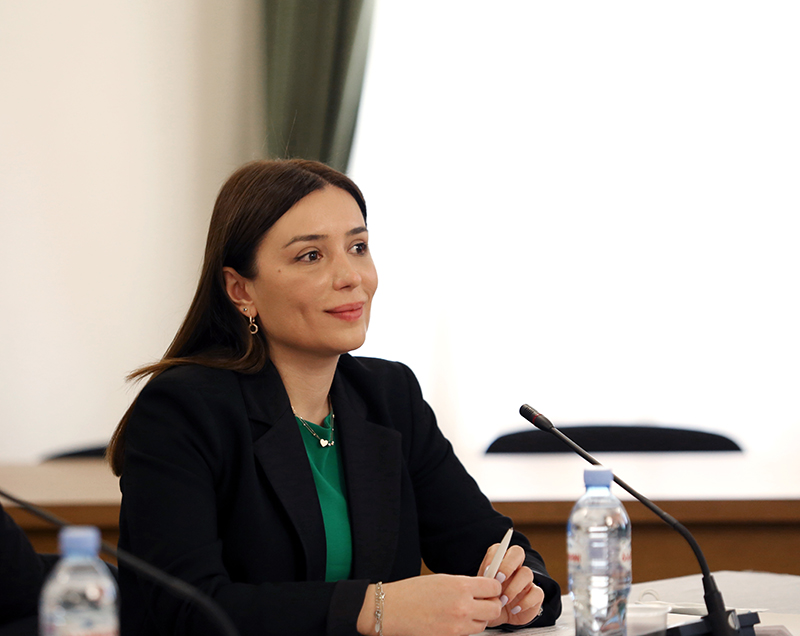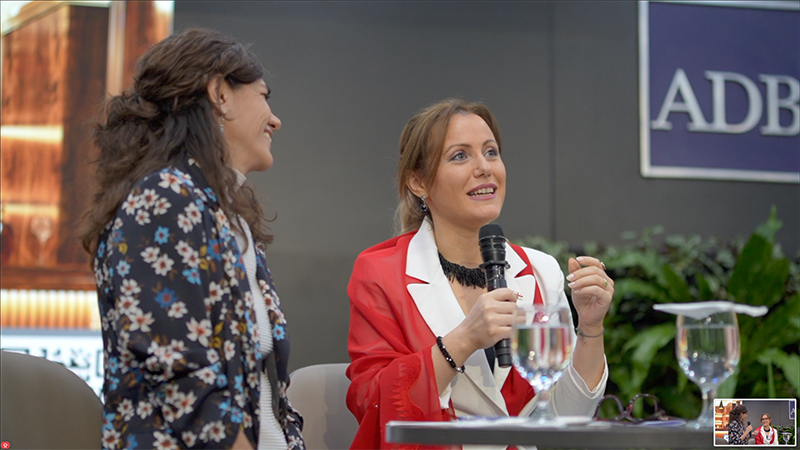Eco-Innovation – A New Opportunity
Challenges linked to the sustainable development have significant impact on the companies. Climate change, insufficient resources, changes in biodiversity – affect various sectors and businesses equally. Over the past decades, companies have appreciated the need for new approaches that support the sustainability of business processes, manufacturing and products. Eco-innovation is a key concept in this context. It intervenes at the level of a company’s business strategy and models and therefore helps us achieve the Sustainable Development Goals, reducing the business activity negative impact on the environment, increasing the resilience of nature to environmental challenges.
Eco-innovations help companies deal with existing challenges through innovative approaches and, at the same time, provides for significant new opportunities for them. Companies that successfully implement eco-innovations have access to new markets, mange to reduce production costs, maintain productivity and reduce negative impact on the environment, they are competitive, and attract new investment.
International organizations are particularly active when it comes to eco-innovation. Since 2019, the European Union, with partner international organizations, has been implementing the EU4Environment programme.[1] The programme combines five key thematic issues and helps Eastern Partnership countries – Azerbaijan, Belarus, Moldova, Georgia, Armenia and Ukraine – in policy planning and creating “greener” investments, promoting innovative products and technologies, and focusing on environmental activities. The programme is implemented jointly by the European Union (EU), the Organization for Economic Co-operation and Development (OECD), the United Nations Environment Program (UNEP), the United Nations Industrial Development Organization (UNIDO) and the World Bank.
One of the main directions and components of the programme is the assistance to ecological value chain and product innovation (“eco-innovations”) in small and medium enterprises (SMEs), implemented by the United Nations Environment Program (UNEP) leadership in cooperation with the Global Compact Network Georgia.
Rie Tsutsumi, Regional Coordinator for Climate Change and Resource Efficiency at the Europe Office United Nations Environment Programme (UNEP), speaks with us.
- Can you tell us briefly about UNEP’s activities under the EU4Environment Programme? What are the priority areas and what are your main target groups in our country? and about the announced contest for the small and medium-sized enterprises?
In the EU Eastern Partnership countries, efforts have been ongoing to support the “greening” of SMEs, i.e., reducing their environmental impacts while improving productivity growth. These efforts have continued during the pandemic.
Under the EU4Environment Programme, funded by the EU, OECD, UNEP and UNIDO support improvements in environmental performance of SMEs and the integration of eco-innovative business approaches in the EaP countries. Particularly, UNEP is implemented activities aimed at ecological value-chains and product innovation.
As part of the Programme, UNEP is assisting SMEs in Georgia and Moldova to develop new business models aligned with the UNEP eco-innovation approach. In Georgia, we are partnering with Global Compact Network Georgia to provide this support.
In a first step, we carried out a market assessment and policy analysis to identify priority sectors for further engagement. The sectors that were identified as most promising to upscale eco-innovation measures among SMEs in Georgia are agriculture, and accommodation and food.
The contest aims to select eight SMEs from those sectors that will benefit from technical support to assess their eco-innovation readiness. Five out of the eight companies will be provided with additional individual technical assistance for business model transformation and formation of action plans.
- Eco-innovation is a new business approach which promotes sustainability throughout the entire life cycle of a product, while also boosting a company’s performance and competitiveness. What is the benefit of eco-innovation approach for SMEs and how implementing sustainable approaches helps companies?
The pandemic has shown how vulnerable SMEs are to global shocks. SMEs are overrepresented in the sectors most affected by the crisis and are 8 per cent more likely to have shut down temporarily than larger firms. They are 9 per cent more likely to experience a fall in sales than large firms. The longer the crisis persists, the more likely that decreased liquidity will translate into insolvency and firm exit.
UNEP helps SMEs face these challenges through our eco-innovation approach. This guides SMEs in incorporating sustainability into every aspect of business models, operations, strategy, products and processes to reduce the environmental and social impact of human activity. It results in an agile, reactive and competitive company.
When companies transition to circular business models, they protect themselves against regulatory shocks, market changes, inefficient technical capacity, limited revenue streams and narrow financing options. Instrumental to this transition are technical intermediaries such as GCNG and networks such as the Global Network for Resource Efficient and Cleaner Production, which provide SMEs with training, expertise and skills.
- What are your recommendations for business and government in terms of eco-innovation? Why is eco-innovation important for the country and for the society?
We are facing a triple planetary crisis – climate, nature, and pollution – with global warming estimated to reach 1.5°C between 2030 and 2052, rapid decline of nature, as well as pollution and waste resulting in the premature deaths of millions of people across the world every year. It is therefore important that businesses and governments adopt more sustainable policies and practices. This is particularly important for the countries of the South Caucasus, including Georgia, as the region is one of the global biodiversity hotspots, while also being highly vulnerable to climate change.
While SMEs play a significant role in the economy of Georgia, we must recognize that it is a joint endeavour. Governments must shape the environment in favour of eco-innovation and increase public sector funding to leverage private sector resources. Consumers must continue demanding eco-innovative products and services from the market. Multinational enterprises must deepen their work along value chains. International organizations such as UNEP must continue to promote initiatives that increase the sustainability and the competitiveness of SMEs.
The benefits are clear. More competitive SMEs. More safe and decent jobs. More resilience to shocks. And more progress towards tackling the triple planetary crisis.
The significance of eco-innovation for small and medium enterprises
In the participating countries, Georgia included, SMEs play an important role in the economy, their impact on the environment is also significant. Introducing eco-innovation thus will help SMEs reduce the resources used, diversify their product offer, recycle materials and manage waste, amongst others.
The introduction of eco-innovation is a holistic process and implies changes in the company / enterprise strategy. In turn, changes in strategy are reflected in the business model, operational level and business practice. Therefore, eco-innovation covers all stages of the product life cycle: from the raw material extraction to the end of life, including its sale.
Global Compact Network Georgia, within the framework of the programme, in collaboration with UNEP, will assist SMEs in awareness raising and capacity building, identifying main challenges in the product development process, as well as in providing technical assistance and advice on reflecting eco-innovative approaches in business strategy.
As a result of the open call for applications announced within the framework of the UNEP project, 8 companies interested and actively working to implement eco-innovations were selected. The programme will help selected companies to effectively implement eco-innovative approaches in their business strategy and activities in line with international standards and through taking the local market into consideration.
Companies participating in the project
“Manna” produces a variety of Georgian tea and focuses on production of premium quality and organig products, free from unhealthy substances and additives. The company intends to continue working in this direction, thus, it requires technical assistance through the involvement of leading experts of the field and international consultant.
“GSG” wants to achieve loss-free production and reduce environmental damage, recycle waste and obtain animal and plant nutrition, pharmaceutical or other products. To do this, it requires information on relevant technologies and markets. Similarly, Teleti Poultry Farm wants to utilize waste from the production, therefore, company’s goal is to get acquainted with new waste processing technologies, to evaluate and receive assistance in implementation. In the same sector, company “Prinveli” wants to install solar panels for heating and illumination, which will reduce company’s use of electricity and help it achieve energy efficient production.
“Bioshesha” (BioFirewood) business is related to the production of environmentally friendly, solid biofuels, bio-briquettes and coal using wood and agricultural waste. Bio firewood and bio coal can be used as alternative energy source for various purposes, including both domestic and industrial demand. Manufacturing this product will reduce logging and improve ecological condition of unused waste materials. The company wants to promote environmental protection, increase access to finance, grow businesses and expand to new markets, manage and sustain businesses in the wake of the Covid Pandemic crisis, attract talented employees and create more jobs.
“Sevsamora Resort & Spa” is a hotel complex, having a hotel building with independent pool and terraces, restaurants, bars, swimming pools of different concepts on its territory. The company aims to create an energy efficient, safe and healthy environment in its facilities, where the solar helium system will be fully automated, pool water heating, hot water and air heating system through helium system will be introduced, reducing or fully saving electricity and gas expanses, and creating healthy and energy efficient environment. In terms of sustainable development, the company plans to integrate fully with the smart helio systems, which will provide possibilities for data monitoring / diagnostics and a detailed report on what energy and financial resources have been saved over time.
“Udabno” is a member of Adjara Group, which operates in the field of agricultural development. Udabno employs a large percentage of locals, including eco-migrants as well as ethnic minorities.
The goal of the company is to produce natural, healthy and Georgian-made products and to export them on behalf of Georgia, to develop almond business in Georgia, to increase the interest of young people, to minimize the use of poisonous chemicals and herbicides, to ensure proper waste management and timely disposal.
Bio-certification of the vineyard is among the company plans, which it works actively on, and the next step will be the development of annual and perennial crops. The company cares about ecology and environmental protection for the Udabno settlement; thus it has implemented mitigation measures, its qualified personnel constantly monitors the conformity with environmental and safety norms.
The companies participating in the competition operate in different directions of agriculture and hospitality. Consequently, they have varying goals and expectations towards the programme, however, their main goal is to introduce Eco-innovative approaches and reduce the damage to the environment.
[1] Additional information about the program is available at: https://www.eu4environment.org/ka/about/




 Search
Search





